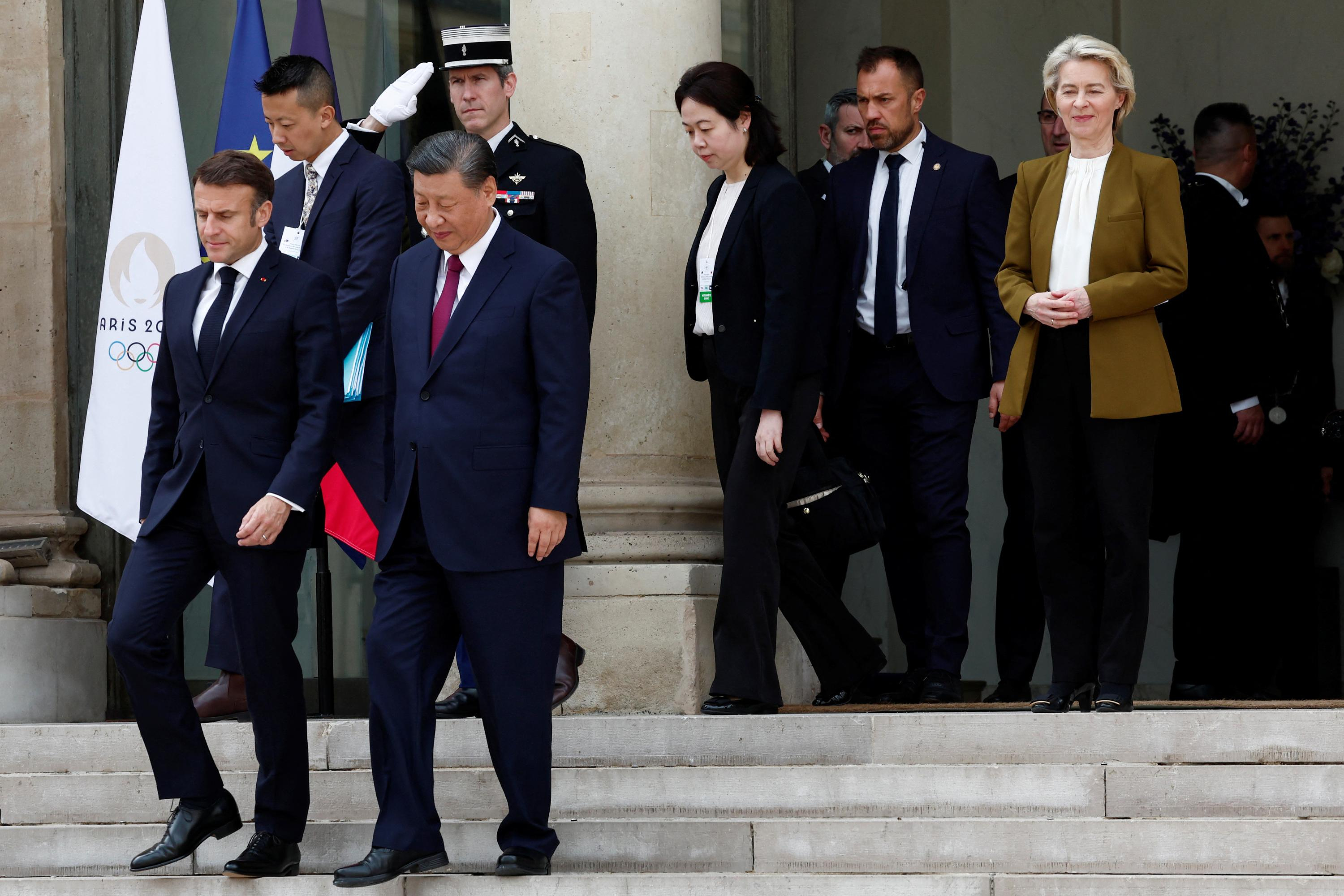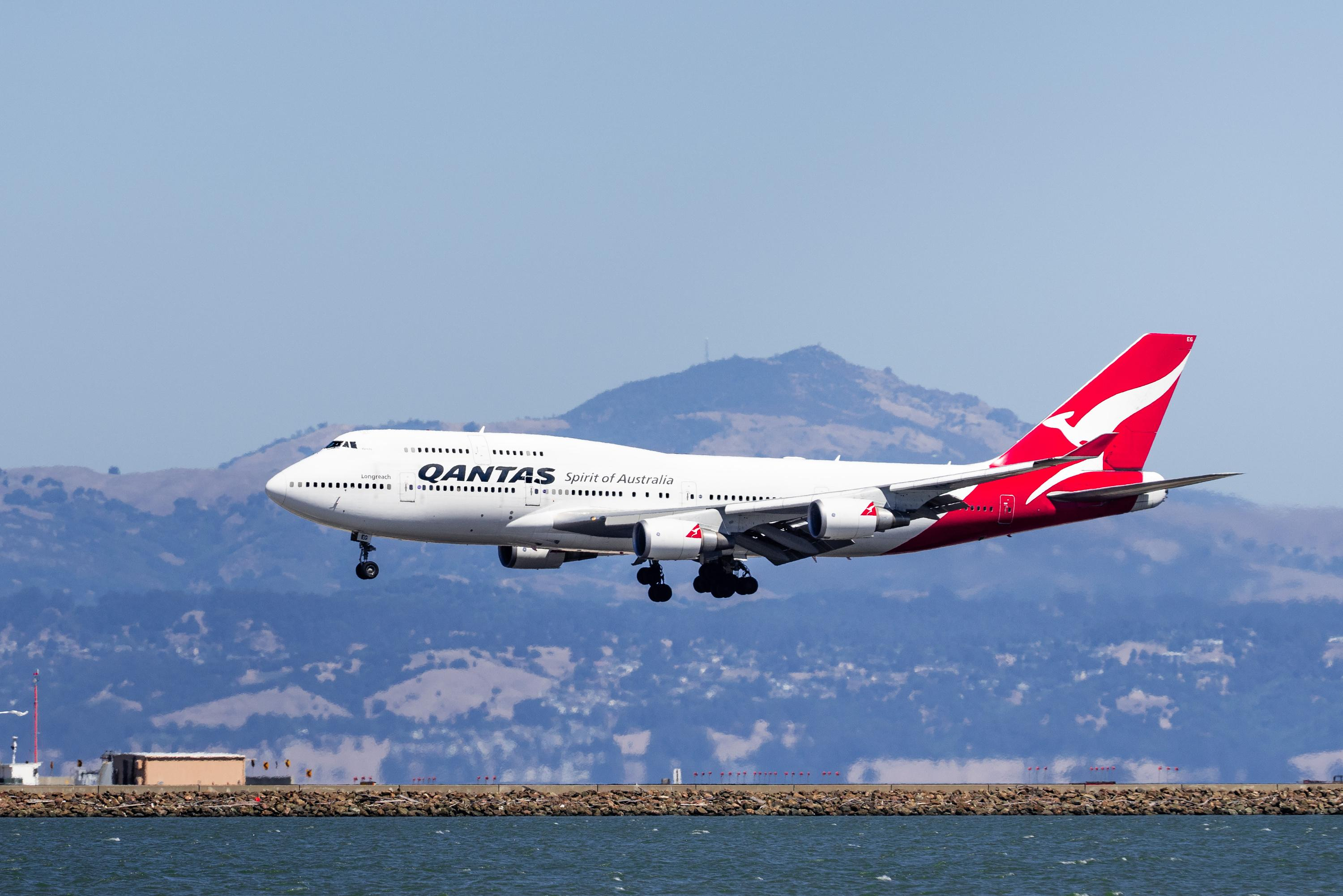The party friends in Berlin have just experienced it: The possibility of providing the governing mayor seemed to be within reach. A weakening SPD and a CDU, which has grown strongly, but is actually without a coalition partner. But in the end, the Greens stayed where they were before - with 18 percent of the votes in a well-developed niche that is good enough for third place among the parties, but from which the highest political offices remain too far away.
The Hamburg Greens experienced something similar three years ago in the state elections, when they were temporarily ahead in the polls with mayoral candidate Katharina Fegebank and ended up finishing a whopping 15 percentage points behind the SPD.
Next weekend, the Hamburg Greens will meet for their next state general meeting, which will not officially be about what the strategy for the Hamburg elections will look like in exactly two years - at the end of February 2025 the city council will be elected according to rotation - but behind the Behind the scenes, the debate has long flared up: What are our winning topics, also compared to the SPD? What would it mean for the power structure if the CDU crawled up out of its basement? And above all: Who are we going into the race with - and then again with the aim of nominating the mayor or, for the first time in Hamburg's state history, the mayoress?
The 2020 state elections had just taken place when the corona pandemic sidelined all other political issues in Hamburg - and the Greens, who did not occupy any of the key departments, went with it. Hamburg's Mayor Peter Tschentscher (SPD) was able to distinguish himself nationwide, in Hamburg the then Social and Health Senator Melanie Leonhard (SPD) took over large parts of the crisis management. And according to general opinion, she did it so well that today's Senator for Economic Affairs is likely to be the top candidate to succeed Tschentscher - with some distance to his intended re-election in two years. In the meantime, however, the topics of the Greens are moving back into focus, especially climate and transport policy. As the Berlin elections showed, the proclaimed turnaround in mobility does not necessarily have to be a winning topic. While the Greens were still responsible for this area before the government was formed in 2021 in the capital, the party did significantly worse in the latest polls.
With a few exceptions, the two partners are a good fit on a personal level, at least at the Senate level. The jovial second mayor Katharina Fegebank (Greens) is the mediating factor. If it gets loud, then between Mayor Tschentscher and Environment Senator Jens Kerstan (Greens). Here there are unhealed wounds after the 2020 election campaign final spurt, some of which was conducted personally; Kerstan, whose ambitions after the end of the legislative period is only speculated within the party, has not yet reached the state of mildness of old age.
And so the two of them deal with the disposal of the harbor silt, the construction of wind turbines in nature reserves, but again and again with the job trade as such. Tschentscher often considers Kerstan to be ill-prepared and the submissions from the environmental authority to be inadequate. Finance Senator Andreas Dressel (SPD) also likes to dish out against Kerstan. He, in turn, always blames the SPD when there is too little progress on climate protection. On the other hand, the SPD has not voiced any criticism of Transport Senator Tjarks. The head of government leaves that to the opposition on detailed questions. Only once did the SPD intervene very directly in a discussion in the form of faction leader Dirk Kienscherf. It was about the criticism of resident parking, which the Senate, operated by the green traffic authority, has massively expanded. It was later said that Kienscherf's proposals were known to the authorities and were already being moved. However, the public statements made by the SPD faction leader must have been uncomfortable.
Apart from the animosity of the male colleagues in the Senate, mostly for personal reasons, the work of the Senate should remain as harmonious as possible until the end of the legislature. Both the SPD and the Greens want to keep the work of the government team out of possible campaign skirmishes as far and as long as possible. "It is important that the Senate work together well and in a spirit of trust until the end of the legislature," says Green party leader Maryam Blumenthal of WELT AM SONNTAG. If a different impression were created, it would harm both government partners. "It's good that we have different levels with different roles and responsibilities. It is the task of the party to work on the program and to sharpen the profile," says the 37-year-old. In this way, the party can live internal plurality – and pursue its own goals in times of election campaigns without embarrassing Senate members by having to publicly criticize their colleagues.
Due to its size, with 33 MPs, the parliamentary group should also be counted among the base. As has been heard, the established Senate representatives of the Greens are often frowned upon at how often they are confronted with requests for posts after the upcoming elections - "without ever having a greater political achievement recognizable than that would justify”, as is mocked.
Five more years as a simple faction member doesn't seem to be a particularly promising prospect for quite a few, and so the pressure on the leadership increases to put together a winning team, in the wake of which as many faction members as possible could be drawn into the Senate. There are currently two green senators and two green senators. After the 2020 election, the entitlement was actually to receive five Senate posts. In the end there was more responsibility for the environment and science authorities, which were already green at the time, but only four positions in total.
The Greens would continue to place their core issues of transport and climate protection at the center of their policies, announced country head Blumenthal in an interview. In addition, the party has set itself the goal of developing clearer green positions on the topics of business, urban development and education. Within the party, the process, which started a year ago, is called Planwerkstatt 2030. Positions on green urban development are to be coordinated at the state general meeting next week. For the areas of business and education, the processes take even longer, the first results of the working groups should be available in summer and autumn.
The party then wants to deal with the concrete content of the election program in the coming early summer. The district assembly election, which is due in May 2024, will bind many forces and is important for the Greens, explains Blumenthal. Only then will one fully concentrate on preparing for the citizenship elections. "We have no pressure there," emphasizes the state chairwoman.
The SPD also wants to take their time. "The idea is that you come to an election program in 2024," says co-head of state Nils Weiland on request. It could be adopted in the autumn of next year. The Social Democrats are still keeping a low profile on possible content. Traditionally, the party tries to cover as broad a spectrum as possible. In 2020, her motto was: "The whole city in view".
Both parties still have to look for the right positioning when it comes to questions of internal security. In Berlin, the approaches to domestic politics are said to have been decisive for many voters, according to election day polls. Blumenthal is very open about the subject. "It's not an easy area for us," she says. Like no other party, the Greens stand for diversity and openness to people of all origins. "Just because we are all of those things, we shouldn't be afraid to state in concrete terms that there are expectations of the people who come to Germany. They, too, have a responsibility to ensure that society works.” Last but not least, the most recent double murder on the regional train in Kiel also falls on the debit side of the Greens’ account, as Anna Gallina, a party friend, heads the justice department, who is currently trying to make her own Complicity in dealing with the alleged perpetrator Ibrahim A. appear as small as possible.
For the SPD, the situation has long been clear: Mayor Peter Tschentscher is to run for a third term. "There is no reason to nominate another top candidate than Peter Tschentscher," says co-head of state Weiland. The party is very satisfied with the work of the mayor and the Senate as a whole. The SPD will formally decide on its list of candidates in the autumn of next year. The search for candidates in the constituencies will begin in early summer 2024.
The Greens have not yet made any determination, at least not an official one. But now everything points to a renewed candidacy by Katharina Fegebank. "Why shouldn't we rely on them again?" asks Blumenthal, the Greens' state chairwoman. "All doors are open to her and we would be happy if she is willing to walk through."
Fegebank herself keeps a low profile on this issue in public, but it is clear from those around her that there is no longer any doubt that she wants to know it again - and for the second round against Tschentscher in the fight for town hall too is highly motivated.
Internally, it should now be explored how the ambitious and bustling Transport Senator Tjarks could still be put on a kind of campaign tandem, because the clever political analyst doesn't want to be a mere spectator this time. However, the 41-year-old himself knows that he is unlikely to score enough points against Tschentscher - especially since he is met with a lot of criticism in Hamburg, the German capital of traffic jams once worked. The federal election campaign with Annalena Baerbock and Robert Habeck cannot serve as a blueprint.
But one thing is certain for the Green leadership circles: the claim to take over the mayoral power will not be given up, under no circumstances do they want to fall behind the claims of 2020. “That would not be plausible,” it says. However, in order not to destroy the internal climate in the Red-Green coalition two years before the election date, the topic should only be brought into broader party participation and thus also to the public after the summer break.

 “Mom, Dad, please don’t die”: in the United States, a nine-year-old child saves the lives of his parents injured in a tornado
“Mom, Dad, please don’t die”: in the United States, a nine-year-old child saves the lives of his parents injured in a tornado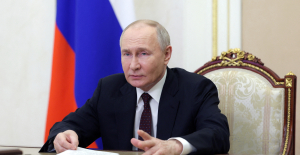 War in Ukraine: Putin orders nuclear exercises in response to Macron and “Western leaders”
War in Ukraine: Putin orders nuclear exercises in response to Macron and “Western leaders” Mexico: the last moments of surfers found in a well, killed with a bullet to the head
Mexico: the last moments of surfers found in a well, killed with a bullet to the head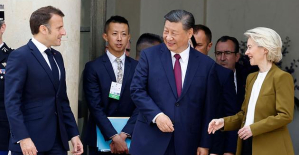 Emmanuel Macron and Ursula von der Leyen display their firmness against Xi Jinping
Emmanuel Macron and Ursula von der Leyen display their firmness against Xi Jinping A baby whose mother smoked during pregnancy will age more quickly
A baby whose mother smoked during pregnancy will age more quickly The euro zone economy grows in April at its best pace in almost a year but inflationary pressure increases
The euro zone economy grows in April at its best pace in almost a year but inflationary pressure increases Children born thanks to PMA do not have more cancers than others
Children born thanks to PMA do not have more cancers than others Breast cancer: less than one in two French women follow screening recommendations
Breast cancer: less than one in two French women follow screening recommendations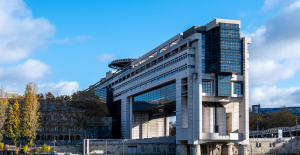 French private sector activity rebounded in April thanks to services
French private sector activity rebounded in April thanks to services “Helldivers 2” player revolt forces Sony to backtrack
“Helldivers 2” player revolt forces Sony to backtrack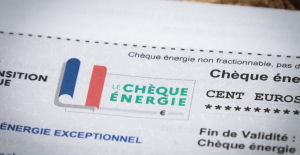 Energy check: have you not received the aid even though you think you are eligible? A complaints counter will open... in July
Energy check: have you not received the aid even though you think you are eligible? A complaints counter will open... in July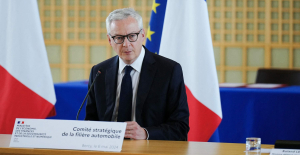 Automobile: France will be electric, reaffirms Bruno Le Maire
Automobile: France will be electric, reaffirms Bruno Le Maire Vienna, Paris, Milan celebrate the 200th anniversary of Beethoven's 9th Symphony
Vienna, Paris, Milan celebrate the 200th anniversary of Beethoven's 9th Symphony Cannes Film Festival: call for strike one week before opening
Cannes Film Festival: call for strike one week before opening Wonder Woman stuntwoman Jeannie Epper dies at 83
Wonder Woman stuntwoman Jeannie Epper dies at 83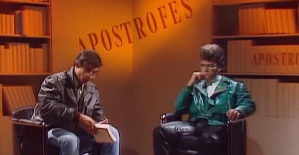 “We had to remove the baccalaureate, considered too difficult”: when the Unknowns made fun (gently) of Bernard Pivot
“We had to remove the baccalaureate, considered too difficult”: when the Unknowns made fun (gently) of Bernard Pivot Omoda 7, another Chinese car that could be manufactured in Spain
Omoda 7, another Chinese car that could be manufactured in Spain BYD chooses CA Auto Bank as financial partner in Spain
BYD chooses CA Auto Bank as financial partner in Spain Tesla and Baidu sign key agreement to boost development of autonomous driving
Tesla and Baidu sign key agreement to boost development of autonomous driving Skoda Kodiaq 2024: a 'beast' plug-in hybrid SUV
Skoda Kodiaq 2024: a 'beast' plug-in hybrid SUV The home mortgage firm rises 3.8% in February and the average interest moderates to 3.33%
The home mortgage firm rises 3.8% in February and the average interest moderates to 3.33% This is how housing prices have changed in Spain in the last decade
This is how housing prices have changed in Spain in the last decade The home mortgage firm drops 10% in January and interest soars to 3.46%
The home mortgage firm drops 10% in January and interest soars to 3.46% The jewel of the Rocío de Nagüeles urbanization: a dream villa in Marbella
The jewel of the Rocío de Nagüeles urbanization: a dream villa in Marbella Facing Jordan Bardella, the popularity match turns to Gabriel Attal’s advantage
Facing Jordan Bardella, the popularity match turns to Gabriel Attal’s advantage Europeans: a senior official on the National Rally list
Europeans: a senior official on the National Rally list Blockade of Sciences Po: the right denounces a “drift”, the government charges the rebels
Blockade of Sciences Po: the right denounces a “drift”, the government charges the rebels Even on a mission for NATO, the Charles-de-Gaulle remains under French control, Lecornu responds to Mélenchon
Even on a mission for NATO, the Charles-de-Gaulle remains under French control, Lecornu responds to Mélenchon These French cities that will boycott the World Cup in Qatar
These French cities that will boycott the World Cup in Qatar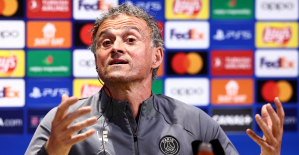 PSG-Dortmund: “Calm”, Mbappé, “like an orchestra”… Luis Enrique gives the keys to the match
PSG-Dortmund: “Calm”, Mbappé, “like an orchestra”… Luis Enrique gives the keys to the match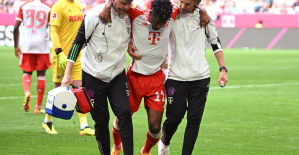 Bundesliga: Kingsley Coman resumed racing five weeks before Euro 2024
Bundesliga: Kingsley Coman resumed racing five weeks before Euro 2024 Ligue 1: Dembélé, Lacazette and Aubameyang, nominated for the best player of the month of April
Ligue 1: Dembélé, Lacazette and Aubameyang, nominated for the best player of the month of April Top 14: at what time and on which channel to follow Perpignan-Clermont?
Top 14: at what time and on which channel to follow Perpignan-Clermont?




